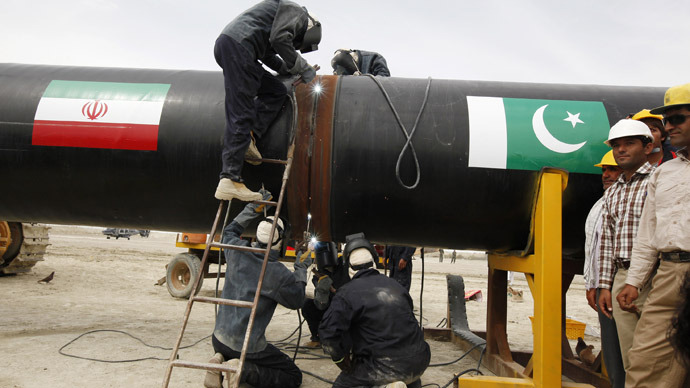The Iran-Pakistan Gas Pipeline (IP), also known as the “Peace Pipeline,” has long been a source of contention, promising energy security for Pakistan while raising geopolitical concerns due to US sanctions on Iran. Now, the US is escalating its threats, warning of potential sanctions if Pakistan proceeds with the project.
The US is escalating threats against Pakistan, warning of potential sanctions if it proceeds with the Iran-Pakistan Gas Pipeline. Pakistan, facing a severe energy crisis, is caught in a dilemma between securing a vital energy source and defying US sanctions.
The Stakes: Energy vs. Sanctions
Pakistan is facing a severe energy crisis, with rolling blackouts and industrial shutdowns weakening its economy. The IP pipeline, designed to deliver natural gas from Iran’s South Pars field, could offer a much-needed lifeline. Iran has already completed its section of the pipeline, and Pakistan recently approved the construction of an 80km segment within its territory.
Figures
Length : 2,775 km (1,724 mi)
Start and End Points : From Asalouyeh, Iran to Multan, Pakistan
Type of Gas : Natural gas
However, the US views the pipeline as a violation of its sanctions regime against Iran, aimed at curbing Tehran’s nuclear and ballistic missile programs. Washington has repeatedly warned Islamabad of the consequences, including potential economic sanctions and diplomatic isolation.
The Numbers: Billions at Stake
The IP pipeline is estimated to cost billions of dollars, with Pakistan having invested significantly. The project’s delay has also triggered potential penalty clauses, adding to the financial pressure on Islamabad. Moreover, losing out on Iranian gas could force Pakistan to rely on more expensive liquefied natural gas imports, further straining its economy.
The Geopolitical Chessboard: Regional Alliances at Play
The US pressure on Pakistan comes amid shifting regional alliances. Washington is cozying up to India, Pakistan’s arch-rival, while Islamabad is deepening its ties with China, which is also investing heavily in Iran’s energy sector. The IP pipeline, if completed, could strengthen the China-Pakistan-Iran axis, challenging US influence in the region.
The Pakistani Dilemma: Caught Between a Rock and a Hard Place
Pakistan is caught in a difficult situation. The energy benefits of the IP pipeline are undeniable, but the potential consequences of defying the US are severe. Islamabad has to balance its energy needs with its diplomatic relations while navigating the complex regional geopolitics.
What’s Next? Uncertain Future of the Peace Pipeline
The future of the IP pipeline remains uncertain. The US threats could derail the project, leaving Pakistan’s energy crisis unresolved. However, Islamabad could also defy Washington, risking sanctions but securing a vital energy source. The coming months will be crucial in determining the fate of this controversial project and its impact on the region.





